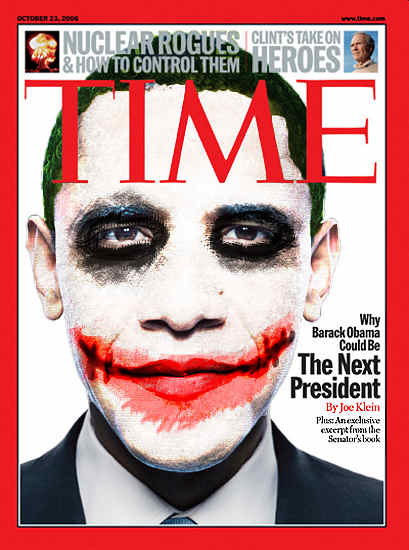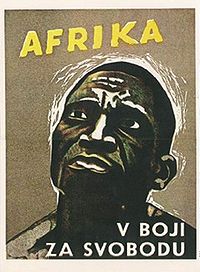But we in the west are not allowed to know, we are mind-manipulated.
But here is what seem to be the case:
Tuesday, January 12, 2010
President Hugo Chavez says there is too much capitalism on Venezuelan television, so he is urging producers to start making "socialist soap operas".
Monday, January 11, 2010
CARACAS - President Hugo Chavez has threatened to seize businesses that raise prices as a result of last week's devaluation of Venezuela's currency.
Wednesday Jan 20, 2010
Chavez eliminated the rate of 2.15 bolivars to the US dollar on January 8. His government set a new two-tiered rate: 2.6 per dollar for priority goods, such as food and medicine, and 4.3 for imports of non-essential items.
Mr. Chávez said he would maintain currency controls and create two different exchange rates for the currency, the bolívar. He also said he would clamp down on black-market currency trading in a bid to slow capital flight; officials have already increased audits of travelers abroad to limit spending of hard currency outside the country.
Planning Minister Jorge Giordani said the devaluation was intended to make exports like coffee and cacao more competitive in foreign markets. Independent economists here said the government could also benefit by receiving more bolívars for oil exports, allowing Mr. Chávez to bolster social spending.

A soldier walks through the Exito hypermarket branch in Valencia, Venezuela, as officials of the government's consumer protection agency take over management of the store on Tuesday, Jan. 19, 2010. Chavez ordered on Sunday the expropriation of the French-owned Exito accusing it of price speculation following the country's currency devaluation. (AP Photo/Juan Carlos Hernandez
a dozen people protested the nationalization, but THEY got to be in the Western News.
State ownership of mega-supermarkets? HOW DARE THEY!

Employees of the Exito hypermarket shout slogans to protest Venezuela's President Hugo Chavez's decision to expropriate the store in front of an Exito hypermarket in Caracas, Monday, Jan 18, 2010. Chavez said on Sunday his government would seize control of the French-owned hypermarket chain accusing it of price speculation following the country's currency devaluation.AP Photo/Fernando Llano)
Chavez SUPPORTERS are black unsightly unwashed people with fat tin-pot dictator pictures. Funny that all former fat tinpot dictators were property of the CIA.

Employees of Exito hypermarket chain and supporters of Venezuela's President Hugo Chavez hold pictures of him as consumer protection agency officials take over management of the chain in Caracas, Tuesday, Jan. 19, 2010. Chavez ordered on Sunday the expropriation of the French-owned chain that operates close to a dozen stores in Venezuela, accusing it of price speculation following the country's currency devaluation. AP Photo/Leonardo Ramirez)

Hah! Corporate Whore AP NEWS shows a photo of soldiers to intimate that Chavez sent armed soldiers into supermarkets to check on prices: (I think the people of Venezuela may be happy about soldiers. The threat of US/CIA/NSA/NED sponsored coup d'etat and economic warfare has been present every day for decades.

Soldiers check prices at a supermarket, accused of raising prices, in Caracas, Monday, Jan. 11, 2009. Venezuela's President Hugo Chavez threatened on Sunday to seize businesses that raise prices as a result of last week's devaluation of Venezuela's currency. (AP Photo/Fernando Llano)

Soldiers check prices at a supermarket, accused of raising prices, in Caracas, Monday, Jan. 11, 2009. Venezuela's President Hugo Chavez threatened on Sunday to seize businesses that raise prices as a result of last week's devaluation of Venezuela's currency. (AP Photo/Fernando Llano)
Customer are leaving! Soldiers! Help!

A customer leaves as soldiers get into a supermarket, accused of raising prices, in Caracas, Monday, Jan. 11, 2009. Venezuela's President Hugo Chavez threatened on Sunday to seize businesses that raise prices as a result of last week's devaluation of Venezuela's currency. (AP Photo/Fernando Llano)

An officer of the Venezuela's consumer protection agency checks prices as soldiers look on at a supermarket, accused of raising prices, in Caracas, Monday, Jan. 11, 2009. Venezuela's President Hugo Chavez threatened on Sunday to seize businesses that raise prices as a result of last week's devaluation of Venezuela's currency. (AP Photo/Fernando Llano)

Evil Soldiers seize a shop (oh my god! HELP! The free world of shopping is endangered!!) , accused of raising prices (Shops do not raise prices, totalitarian corporations do!) , in Caracas, Monday, Jan. 11, 2009. Venezuela's President Hugo Chavez threatened on Sunday to seize businesses that raise prices as a result of last week's devaluation of Venezuela's currency. (result? as an attack on Chavez currency AUTARKY)

A cashier counts bolivar notes at a supermarket in Caracas January 12, 2010. Around 70 stores have been closed by the Venezuelan government for 24 hours after they repriced their goods following the recent devaluation of the bolivar. Venezuelan authorities backed by soldiers closed dozens of retail outlets for price gouging after a currency devaluation that has triggered a frenzy of shopping but meets with market approval. President Hugo Chavez announced the devaluation on Friday, cutting the exchange rate of the bolivar against the dollar by half for oil income and for goods deemed nonessential. (REUTERS/Jorge Silva (VENEZUELA - Tags: POLITICS BUSINESS)

Question:
Which countries have sovereign money? Money where THEY determine the value against the US dollar etc?? (Not to be confused with http://en.wikipedia.org/wiki/Capital_control )
China
Venezuela
??

http://en.wikipedia.org/wiki/Optimal_currency_area
Friedrich Hayek advocated denationalization of money reasoning that private enterprises which issued distinct currencies would have an incentive to maintain their currency’s purchasing power and that customers could choose from among competing offerings.
http://en.wikipedia.org/wiki/Fixed_exchange_rate

The value of Bolivar Fuerte (like Yuan Renminbi) are NOT determined by Wall Street and International Private Owners (IPO), but by the sovereigns.
CIA/WALL STREET HATES THAT!
CARACAS, Jan 9 (Reuters) - Venezuelans rushed to the shops on Saturday, fearful of price rises after a currency devaluation that will let President Hugo Chavez boost government spending ahead of an election but feeds opposition charges of economic mismanagement.
In a bid to jump-start the recession-hit economy of South America's top oil exporter, Chavez on Friday announced a dual system for the fixed rate bolivar.
It devalues the currency to 4.3 and 2.6 against the dollar, from a rate of 2.15 per dollar in place since 2005, giving the better rate for basic goods in an attempt to limit the impact of the measure on consumer prices.

The opposition seized on fears that prices for imported goods will double as shoppers formed lines of more than a hundred people outside some stores in the capital Caracas.
"It was a Black Friday, tinted red," said sales executive Diana Sevillana in reference to the crimson color of Chavez's socialist party. She stood in a line of 30 people outside an electrical goods store in a middle class neighborhood.
The socialist Chavez believes the state should have a weighty role in managing the economy. During his 11 years in office he has nationalized most heavy industry, and business and finance are tightly regulated.
Last month, BMO Capital Markets cut ratings on Colgate-Palmolive Co (CL.N), Avon Products Inc (AVP.N) and Kimberly-Clark Corp (KMB.N) to "market perform" saying a possible devaluation in Venezuela could hurt the U.S. consumer goods makers' profits.
The new two-tiered exchange system offers the 2.6/dollar rate for goods deemed essential including food, medicine and industrial machinery. Other products, including cars and telephones, will be imported at the higher 4.3 rate
Chavez said on Friday that the Central Bank had transferred $7 billion of foreign reserves to a development fund used to finance investment projects.
Countries with foreign exchange controls are also known as "Article 14 countries," after the provision in the International Monetary Fund agreement allowing exchange controls for transitional economies. Such controls used to be common in most countries, particularly poorer ones, until the 1990s when free trade and globalization started a trend towards economic liberalization. Today, countries which still impose exchange controls are the exception rather than the rule.
Foreign exchange controls are various forms of controls imposed by a government on the purchase/sale of foreign currencies by residents or on the purchase/sale of local currency by nonresidents.
Common foreign exchange controls include:
* Banning the use of foreign currency within the country
* Banning locals from possessing foreign currency
* Restricting currency exchange to government-approved exchangers
* Fixed exchange rates
* Restrictions on the amount of currency that may be imported or exported

Tobin tax!

75% of U.S. notes in circulation, or more than $600 billion, are held outside the U.S.

No comments:
Post a Comment